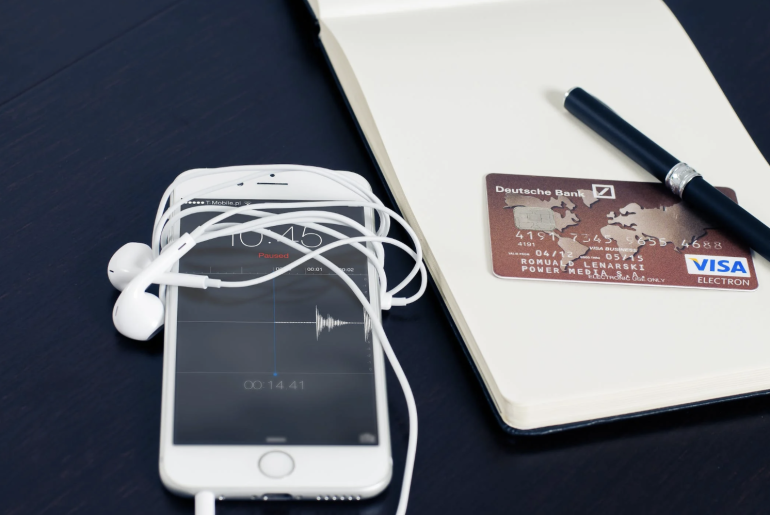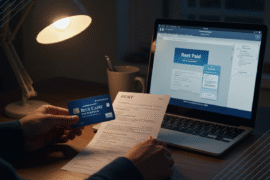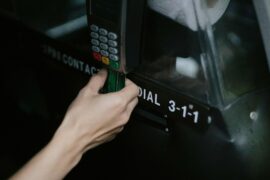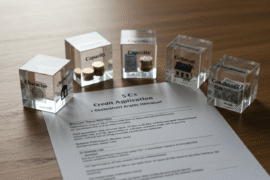This article may contain references to products or services from one or more of our advertisers or partners. We may receive compensation when you click on links to those products or services. Nonetheless, our opinions are our own.
In the modern economic landscape, a credit score is the cornerstone of one’s financial life. A good credit score unlocks opportunities, including favorable interest rates and higher credit limits. Most people discover the importance of credit scores when securing funds to buy a new car or house.
Understanding the factors that can harm the credit score is essential to enhance creditworthiness in the eyes of lenders.
This article lists the most important factors affecting one’s credit score and provides tips to help improve personal credit management.
- Late Payments
- High Credit Utilization
- Lack of Credit History
- Maxing Out Credit Cards
- Applying for Multiple Credit Cards or Loans
- Closing Old Credit Accounts
- Defaulting on Loans or Credit Cards
- Foreclosure or Bankruptcy
- Collection Accounts
- Identity Theft and Fraudulent Activity
- Errors on Credit Reports
- Conclusion
- Recommended Reads
Late Payments
Comprising 35% of the credit score in the FICO model, payment history is the most heavily weighted factor when calculating the credit score. Repeatedly being late for payments can negatively impact the credit score since late payments will be reported to the credit bureaus.
Remember that a timely payment history is essential for maintaining a healthy credit score. Automating the payment process or aggressively paying off credit card debt ensures that all payments are made punctually, resulting in a good credit score.
High Credit Utilization
The credit utilization ratio (the debt-to-credit limit ratio) is another credit score factor contributing to 30% of the credit score calculated in the FICO model. The high utilization ratio indicates the borrower heavily relies on credit, which might be a red flag for the lenders. Therefore, lenders and creditors prefer a lower ratio and generally prefer to keep it at 30% or less.
Lack of Credit History
A lack of credit history can lead to a lower credit score or a “thin file.” Lenders use credit history to evaluate borrower creditworthiness, which can be challenging without a responsible credit management track record. However, some quick loans don’t require a credit score history, such as payday loans, which rely on the borrower’s income to determine the loan size. For those with no credit history, some proactive steps can help in building a good one, such as:
- Opening a secured credit card
- Becoming an authorized user on someone else’s credit card
- Obtaining a credit-builder loan
Maxing Out Credit Cards
Maxing out credit cards can significantly impact the credit score, resulting in a higher utilization ratio. For lenders, this indicates a greater risk of financial instability and an inability to manage debt responsibly. However, some people facing financial emergencies might be unable to avoid maxing out their cards. In such cases, paying the balance and ensuring timely payments can eventually help improve the credit score.
Applying for Multiple Credit Cards or Loans
As per FICO, applying for a new credit card accounts for 10% of the credit score. These inquiries remain on the credit report for two years, potentially impacting the credit score. Furthermore, when applying for new credit, the lender needs to access the borrower’s credit reports, resulting in a “hard inquiry.” Each hard inquiry can lower the credit score by 5 points, further impacting the overall credit score.
Closing Old Credit Accounts
Despite the temptation to close fully paid credit accounts, doing so might hurt your credit score. It can impact your credit history, which makes up 15% of the FICO credit score calculation. Additionally, it can affect the mix of credit accounts, another component that contributes 10% to the FICO credit score model. It’s worth noting that having multiple credit accounts can improve creditworthiness, as it indicates the borrower effectively manages their credit and increases the likelihood of credit application approvals.
Defaulting on Loans or Credit Cards
Defaulting on loans or credit cards occurs when the borrower misses multiple payments or fails to make any payments for an extended period. This can have severe consequences for the credit score, as it will show a history of late payments, which is a red flag for lenders. Additionally, defaulting will result in negative marks on the credit report, which can stay on the report for up to 7 years.
Foreclosure or Bankruptcy
Foreclosure or bankruptcy can severely harm the credit score, causing it to decrease by 100 points or more. The foreclosure process begins after being late or missing mortgage payments. In both situations, foreclosure or bankruptcy will have a detrimental effect on the credit score, resulting in the addition of negative marks that can stay on the credit report for up to 10 years. These negative marks can limit the ability to obtain other forms of credit, as they indicate significant risks to lenders.
Collection Accounts
When a borrower fails to make payments on time, typically after 180 days past due, creditors may charge off the account, classifying the debt as uncollectible. Alternatively, they may sell the delinquent accounts to a third party, such as a collection agency, to pursue debt collection. In either case, these actions can significantly harm the credit score and add negative marks to the credit report. These negative marks can remain on the report for up to seven years. It’s important to note that the more recent a collection account is, the more it will negatively impact the credit score.
Identity Theft and Fraudulent Activity
Identity theft can harm the credit score because any activity from the theft will be reflected in the credit report. In cases of identity theft, unauthorized access is obtained by the attacker to the victim’s name, social security number, and credit card number.
The stolen credit card number is often used for fraudulent transactions, resulting in higher credit card balances and an increased credit utilization ratio. Moreover, the attacker may focus on unused credit cards, resulting in late payments and potentially leading to a collection account. Consequently, all these adverse effects will be evident in the credit report, leading to a decrease in the credit score.
Errors on Credit Reports
Eventually, all the negative effects, including late payments, credit history, and defaulting, will be reflected in the credit reports. However, it’s important to note that these reports can contain errors, such as incorrect payment history, which can significantly impact the credit profile. Therefore, it is advisable to regularly review the credit report from all three major credit bureaus (Equifax, Experian, and TransUnion) to ensure that all the information is accurate and current.
Conclusion
A credit score is essential for everyone’s finances. However, some small mistakes, such as incorrect information, can have a major negative impact. By understanding the above mentioned factors, you can easily avoid them by taking simple steps like paying bills on time, automating payments, and monitoring your spending to avoid reaching the maximum credit limit.

Reviewed and edited by Albert Fang.
See a typo or want to suggest an edit/revision to the content? Use the contact us form to provide feedback.
At FangWallet, we value editorial integrity and open collaboration in curating quality content for readers to enjoy. Much appreciated for the assist.
Did you like our article and find it insightful? We encourage sharing the article link with family and friends to benefit as well - better yet, sharing on social media. Thank you for the support! 🍉
Article Title: Things That Can Hurt Your Credit Score
https://fangwallet.com/2023/07/15/things-that-can-hurt-your-credit-score/The FangWallet Promise
FangWallet is an editorially independent resource - founded on breaking down challenging financial concepts for anyone to understand since 2014. While we adhere to editorial integrity, note that this post may contain references to products from our partners.
The FangWallet promise is always to have your best interest in mind and be transparent and honest about the financial picture.
Become an Insider

Subscribe to get a free daily budget planner printable to help get your money on track!
Make passive money the right way. No spam.
Editorial Disclaimer: The editorial content on this page is not provided by any of the companies mentioned. The opinions expressed here are the author's alone.
The content of this website is for informational purposes only and does not represent investment advice, or an offer or solicitation to buy or sell any security, investment, or product. Investors are encouraged to do their own due diligence, and, if necessary, consult professional advising before making any investment decisions. Investing involves a high degree of risk, and financial losses may occur including the potential loss of principal.
Source Citation References:
+ Inspo












































